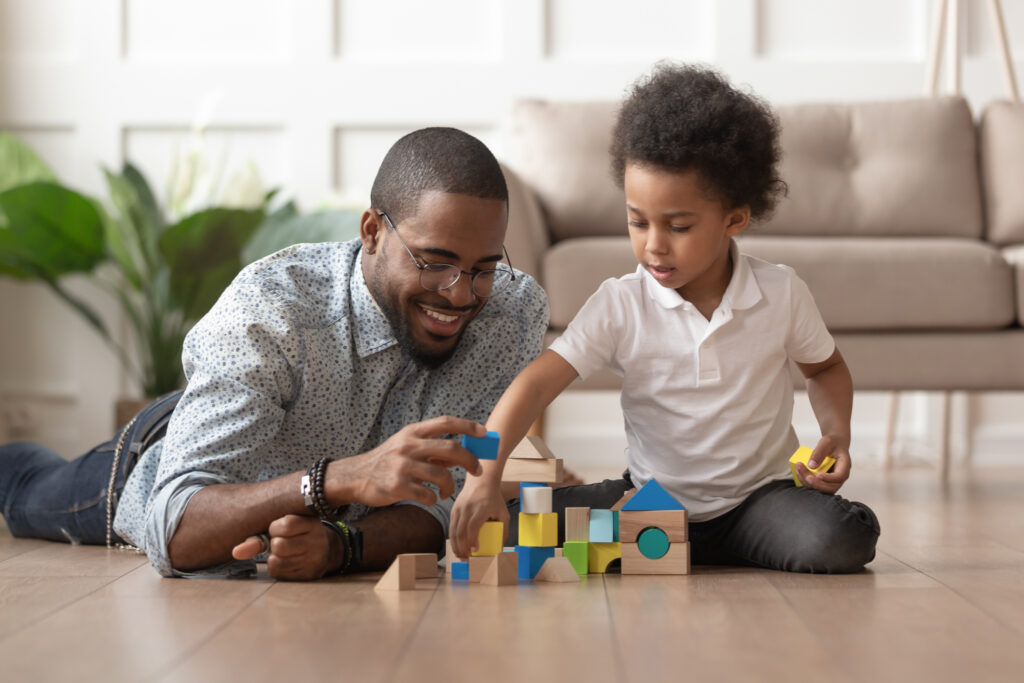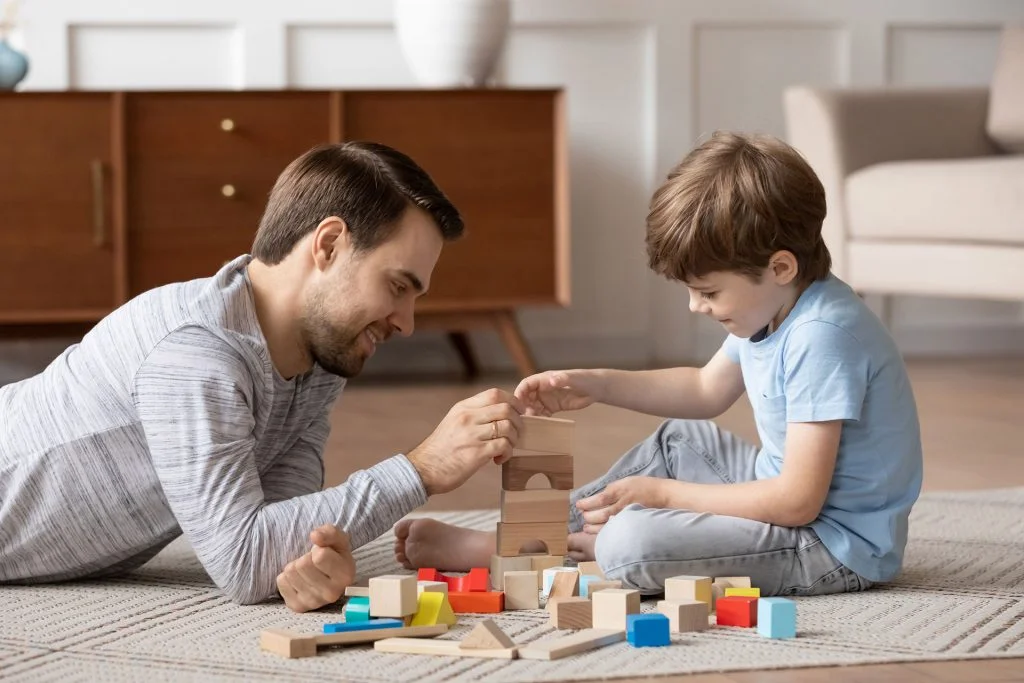It’s never too early for a father to play with his child, and according to research by the University of Cambridge and the LEGO Foundation, physical play with Dad is more than just a bonding exercise for ages zero to three.
There’s evidence that father-child play can also help littlies control their behaviour and emotions as they grow up, so let’s see how this finding emerged and why all parents should take the time to play.
How did this research come about?
It’s well-known that parent-child play helps youngsters build connections, learn skills, make sense of the world and have fun with their loved one, but this research arose because less is known about the impact of father-child play.
Studies into parent-child play have mostly focused on mums and bubs, so the researchers wanted to shift the focus to dads and see whether father-child play differs from mother-child play, and how dad-driven play affects children’s development.
To do this, the researchers sifted through data from 78 different studies undertaken between 1977 and 2017 to find as much information as possible about father-child play. Then, with 40 years’ worth of ‘fragmentary evidence’ in hand, they looked for patterns around:
- How often fathers and children play together
- What kind of play they engage in and
- Any possible links between this play and the children’s development.

What do we now know about father-child play?
The research data mainly came from European and North American families, and it revealed many similarities between dads and mums overall.
That said, patterns were found around father-child play, and the data indicates that:
- On average, most fathers play with their child every day
- Father-child play is usually more physical, even when children are very small and
- This physical play helps children control their feelings now and regulate their behaviour later (e.g. when they go to school).
‘Physical play’ includes activities like helping a young baby to gently raise their limbs to test their strength, and engaging in piggy-back rides, tickles and chasing games with toddlers.
This study linked early father-infant play to positive social, emotional and cognitive outcomes, and the association between father-child play and a child’s later ability to control their emotions was found in ‘almost all’ of the 78 studies the researchers looked at.
Although the researchers acknowledge that, ‘There are limits to what the research can tell us’ they say, ‘It does seem that children who get a reasonable amount of playtime with their father benefit as a group.’
Specifically, ‘Children who enjoyed high-quality playtime with their fathers were less likely to exhibit hyperactivity, or emotional and behavioural problems. They also appeared to be better at controlling their aggression, and less prone to lash out at other children during disagreements at school.’
The study also found that the frequency of father-child play rises from infancy, then declines between the ages of six and 12, but the good news is that the skills learnt in the early years stand children in good stead later on.

How does physical play help youngsters manage their emotions and behaviour?
Physical play is seen as a good fit for self-regulation because it creates fun and exciting situations that call for children to control their bodies and their minds.
Boisterous, rough-and-tumble play provides opportunities for youngsters to:
- Moderate their strength
- Learn when things have gone too far and
- Regulate their emotions in the case of misadventure.
All in all, being in a safe environment with a loving parent allows youngsters to practise the best way to respond and behave, with fun thrown in for good measure.

What happens if a father isn’t present in the child’s life?
Although this research highlights the benefits of father-child play, it’s important to remember that children in mum-only households also reap the rewards of parent-child play.
Mums are just as capable of physical play as dads, but no parent should stick to one play style only. The research suggests that children benefit from being given a variety of different ways to play and interact, so you’re encouraged to throw lots of different ideas into the mix – from rough-and-tumble to roleplay.


